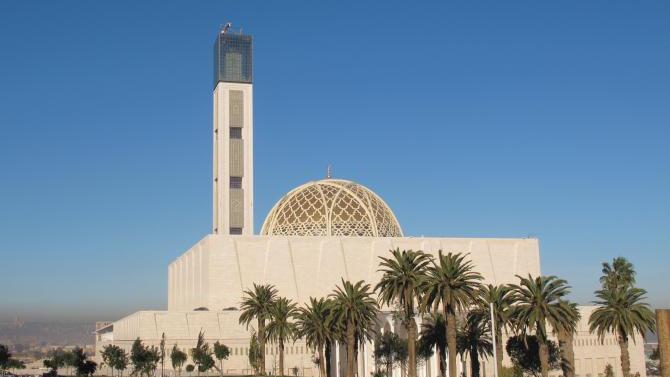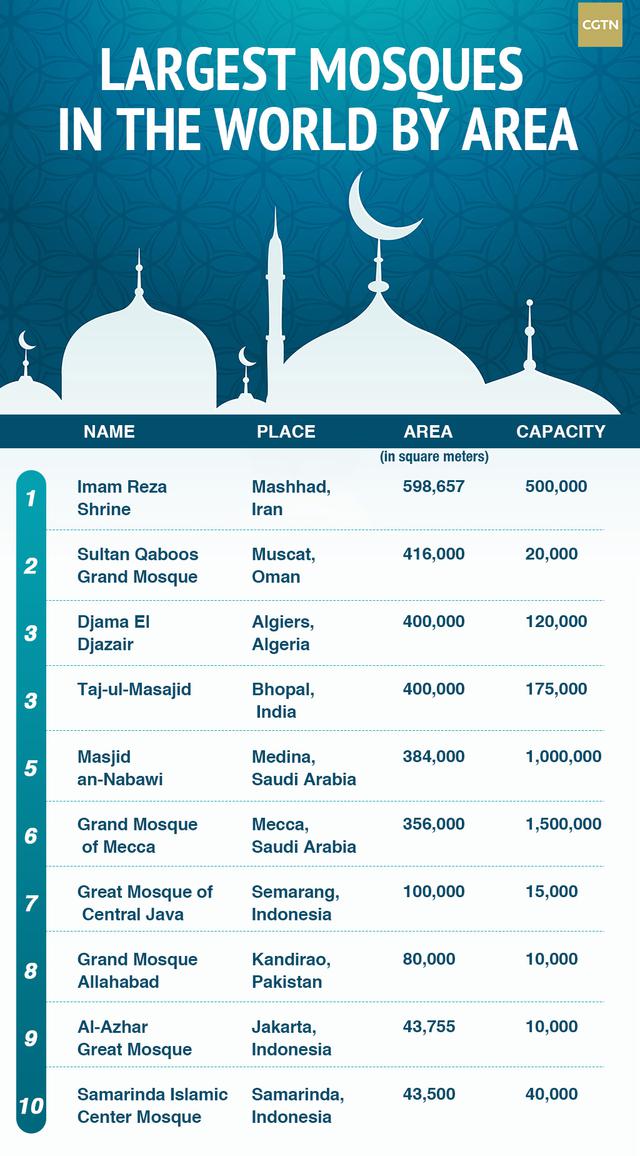
Africa's largest mosque set to open in Algeria's capital
Algeria is set to open Africa's largest mosque, the Djama El Djazair, or the Great Mosque of Algiers. Constructed by China State Construction Engineering Corporation (CSCEC), the mosque, built in the Algerian capital, is estimated to have cost two billion U.S. dollars to build.
The mega mosque complex covers an area of 400,000 square meters, which makes it the third largest mosque in the world, after the Imam Reza Shrine (600,000 square meters) in Mashhad, Iran and Sultan Qaboos Grand Mosque (416,000 square meters) in Muscat, Oman.
The Djama El Djazair replaces the King Hassan II Mosque in Casablanca, Morocco as the largest mosque in Africa. While the total capacity of the mosque complex is 120,000, its 20,000-square meter prayer hall is designed to accommodate 37,000 worshippers at a given time.
The giant mosque with an engraved golden dome also features the world's tallest minaret with a height of 265 meters and is visible from across Algiers. An observation deck is housed atop the minaret, around 37 floors above the ground, which offers visitors a breathtaking panoramic view of the turquoise waters of the Mediterranean Sea along the Bay of Algiers.
The Djama El Djazair complex includes a park, a public square, a cultural center, a staff housing area, a religious school, a fire station and a library.

The project is by far the largest religious building constructed overseas by a Chinese company, according to Xinhua news agency. the construction took CSCEC nearly seven years after it won the bid for the project in 2011. The construction started in August 2012.
"We won the bidding of the Great Mosque of Algiers out of other 14 international contractors," Zhou Sheng, CSCEC General Manager in Algeria, recently . He added that "the quality of the company's projects and company's performance" was instrumental in gaining the confidence of Algerian government and securing the project.
The Chinese company has been active in Algeria for three decades, undertaking various developmental projects including housing, roads, highways, bridges, schools and hospitals. However, "among all the projects, the Great Mosque of Algiers is the most important one, and this is a milestone for our development in Algeria," Zhou stressed.
CSCEC deployed about 2,300 engineers, construction managers and workers from China, Algeria and other African countries. The project was completed on schedule despite such difficulties as the financial crisis that hit Algeria in recent years.
Special emphasis has been put on environmental sustainability while designing the mosque allowing for natural cross-ventilation. The mosque is equipped with solar panels and a sophisticated system to retain and recycle rain water, in keeping with the sustainability focus.
As Algiers sits on the cusp of two major tectonic plates, the mosque is designed to withstand a magnitude 9.0 earthquake. The structures have been specially processed to resist corrosion.
"In Algeria, it is said every one thousand years, a great mosque will be built. Since the independence of Algeria from the sixties, they haven't built a great mosque. So this is a historic mark for the country and for all the people. We are really proud of that," Zhou told CGTN.
Former Algerian President Abdelaziz Bouteflika who had launched the ambitious project of building Africa's largest mosque is no longer in power to witness its opening. Bouteflika, the country's longest-serving president, after months of protests.
(CGTN)

